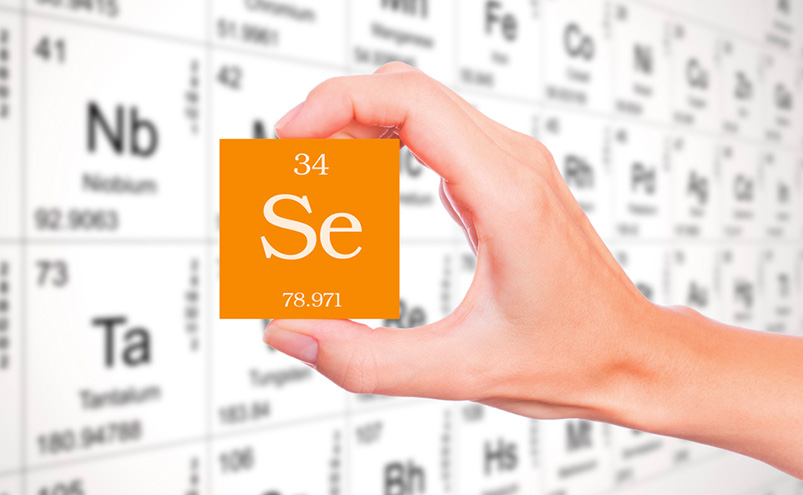The National Cancer Institute reports that a 10-year cancer prevention trial suggests that dietary supplements of the trace element selenium may significantly lower the incidence of prostate, colorectal, and lung cancers in people with a history of skin cancer. Selenium is recognized as an important element of nutrition with antioxidant and anticancer properties.
Studies also suggest that selenium affects cancer risk in two ways:
1) As an anti-oxidant, selenium can help protect the body from damaging effects of free radicals and
2) Selenium may also prevent or slow tumor growth. Certain breakdown products of selenium are believed to prevent tumor growth by enhancing immune cell activity and suppressing development of blood vessels to the tumor.
How much should I take?
The most common dosage is 100 micrograms (mcg) a day as a dietary supplement. Selenium and vitamin E facilitate each other's absorption, so it's beneficial to take them together. Dosages used in clinical trials range from 21 to 200 mcg. Even though it is known to be an essential mineral, selenium can also be toxic. According to the FDA, adverse effects have been reported from high intakes of selenium including selenosis (hair and nail brittleness and loss), gastrointestinal disturbances, skin rash, garlic-breath odor, fatigue, irritability, and nervous system abnormalities. The FDA concludes that the use of selenium as a dietary supplement should not exceed 400 mcg each day.
The Importance of Selenium
Selenium is an important part of the antioxidant enzyme glutathione peroxidase, helping protect cells against the effects of free radicals that are produced during normal oxygen metabolism. Based on the latest research, here are some known facts about selenium:
- Powerful antioxidant that protects cell membranes and intracellular structural membranes from lipid peroxidation
- May support healthy brain function
- Low dietary intake of selenium has been linked to higher rates of various degenerative diseases
- May support cardiovascular health and healthy immune function
- Reduced selenium levels have been linked to joint disorders
- May help rid the body of toxic heavy metals
Where can you find selenium?
Plant foods are actually the major sources of selenium with the content of selenium in the food depending on the selenium content in the soil where the food is grown. Selenium can also be found in some meats and seafoods as well as some nuts, such as Brazil nuts, which are quite high in selenium content and should only be eaten occasionally.
Who may need supplemental selenium?
In the U.S. , most cases of selenium depletion or deficiency are associated with severe gastrointestinal problems, such as Crohn's disease, or with surgical removal of part of the stomach. These and other gastrointestinal disorders can impair selenium absorption. People with acute severe illness who develop inflammation and widespread infection often have decreased levels of selenium in their blood. Physicians will evaluate individuals who have gastrointestinal disease or severe infection for depleted blood levels of selenium to determine the need for supplementation.














